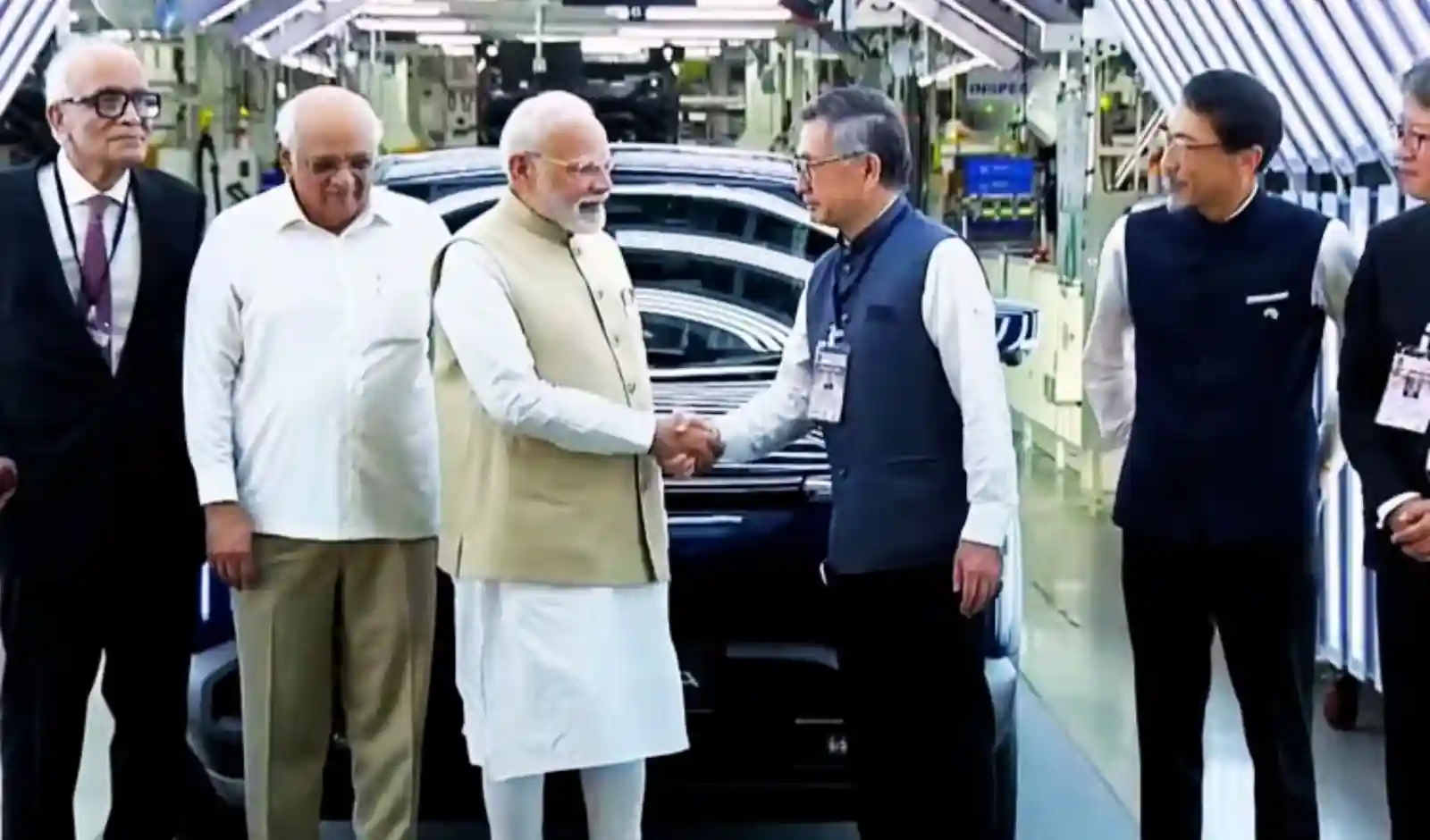
India’s largest carmaker Maruti Suzuki has officially begun production of its first electric vehicle, the eVitara, at the company’s Hansalpur facility in Gujarat. The production launch was flagged off by Prime Minister Narendra Modi.
The eVitara, first showcased at the Bharat Mobility Global Expo last year, is Maruti Suzuki’s first battery-electric vehicle (BEV). The company plans to launch four BEVs by the end of this decade.
Maruti Suzuki has set a target of producing 67,000 electric vehicles by FY2026, with the majority of the output aimed at exports. However, competitors such as Tata Motors and Mahindra have already established an early lead in India’s EV market, with Tata Motors emerging as the country’s largest EV maker.
Globally, many automakers have slowed down their EV ambitions due to weak demand, high costs, insufficient charging infrastructure, and rising competition from Chinese automakers. In India, however, EV competition is expected to intensify as all major OEMs prepare to launch mass-market electric models and expand charging infrastructure.
Maruti Suzuki has previously stated that it aims to become India’s largest EV maker in the first year of eVitara production. Unlike many OEMs, the company is pursuing a multi-fuel strategy for decarbonization, including battery-electric, hybrid, CNG, and flex-fuel vehicles.
By FY2031, Maruti Suzuki expects CNG and biogas-based CNG vehicles to account for 35% of its powertrain mix, while traditional ICE vehicles and hybrids will each make up 25%.
The parent company, Suzuki Motor Corporation, is positioning India as a global hub for EV production. India contributed 61% of Suzuki’s total production and 57% of global sales in FY2024, making it the company’s largest market.
The Hansalpur plant, with an annual capacity of 750,000 units, was recently transferred from Suzuki Motor Corp. to Maruti Suzuki. Currently, Maruti Suzuki’s production capacity stands at 2.35 million units annually across three plants — Gurugram and Manesar in Haryana, and Hansalpur in Gujarat.
Looking ahead, the company plans to double production capacity to 4 million units by 2030. Maruti Suzuki has already begun production at its new greenfield plant in Kharkhoda, Haryana, with an initial capacity of 250,000 units, and is planning another greenfield facility in Gujarat.

